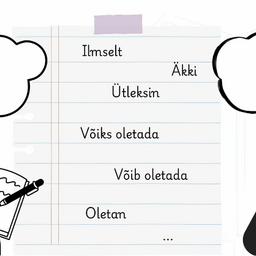A person usually wants to appear confident. But there are situations where showing uncertainty is necessary. For example, in scientific work where knowledge changes rapidly.
Linguist Nele Karolin Teiva researches how to express uncertainty in Estonian. She uses the word "softener" for words that indicate uncertainty.
For example, when writing an email to a supervisor, you might doubt the reasons. Should you write "the reason is probably this" or "maybe the reason is this"? Will the reader notice the difference?
Teiva has studied how people understand these words. For instance, "it can be assumed" seems more confident than "it could be assumed".
Why is this important to research? Writers want to know how to express uncertainty without the text's credibility suffering. This is especially important for students.
Some guidelines say that scientific text must be certain. But softeners are important because they help honestly state when something isn't entirely clear.
Studies show that students use softeners more in their first year. With experience, they use them less. In English, it's the opposite – more experienced writers use them more.
Text robots cannot express uncertainty. Although they might have reasons to doubt. Teiva's research asks what linguistic cues readers need to assess a text's credibility.
In conclusion: a writer should be as confident as possible, but also honest when they're uncertain.

